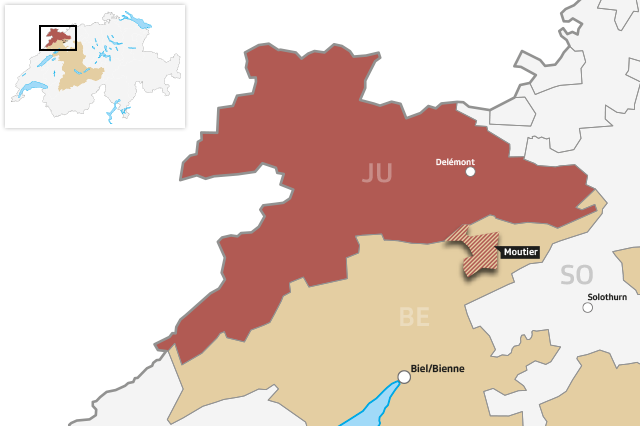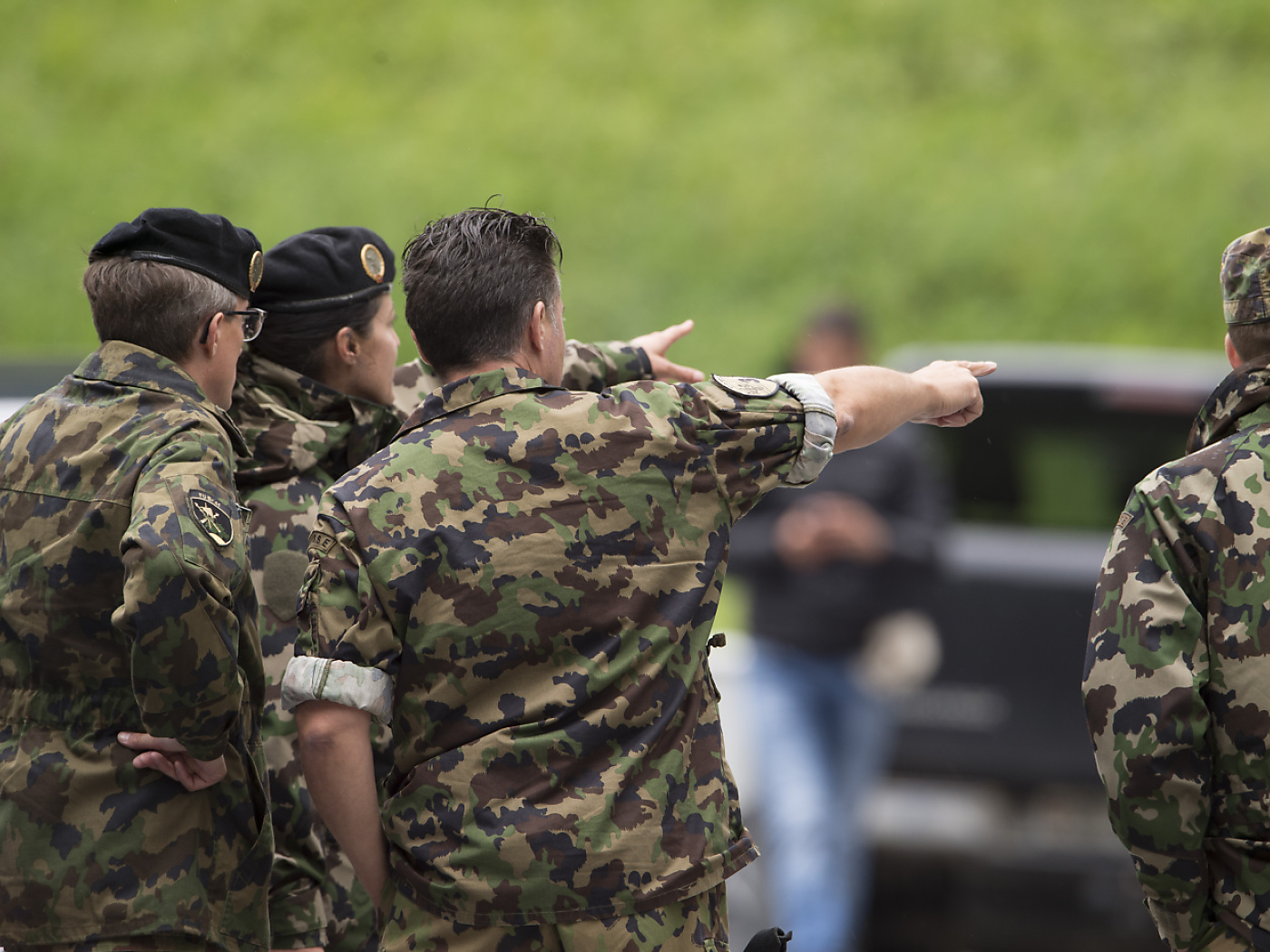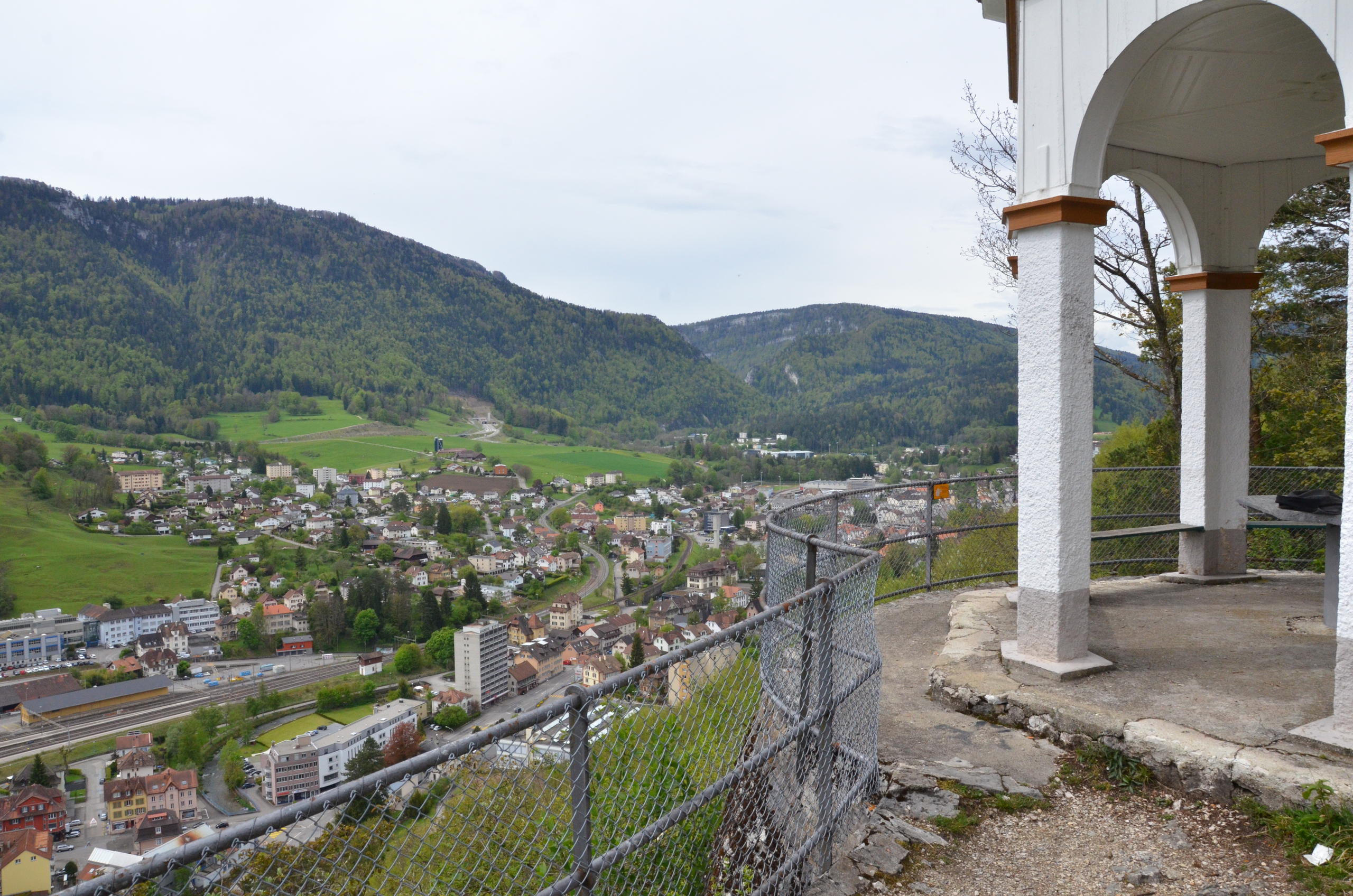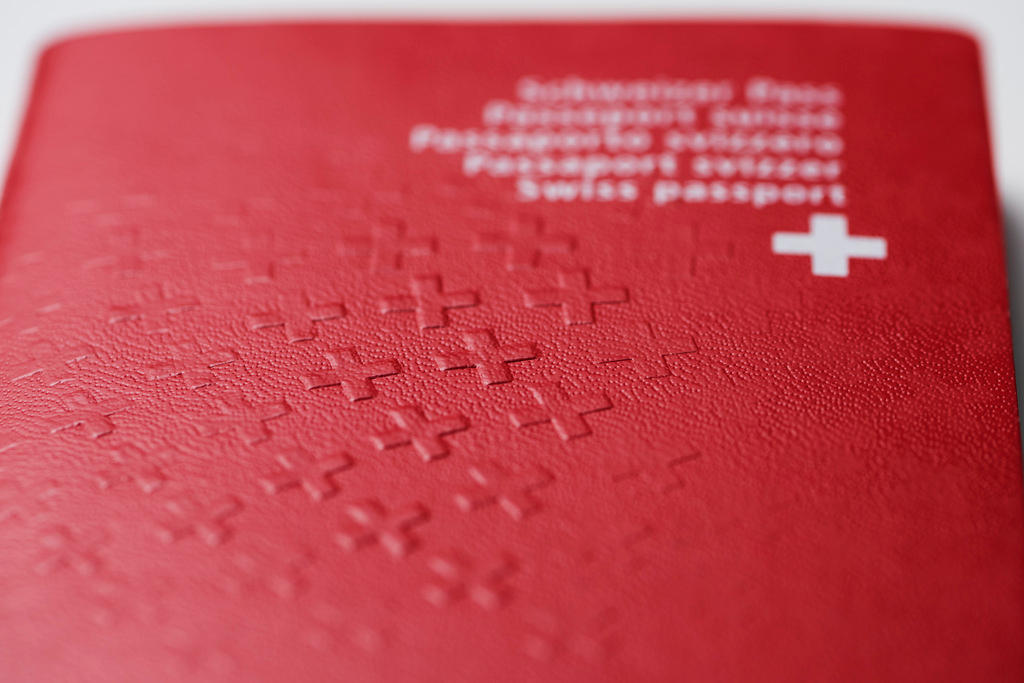All the ingredients for a Swiss civil war
Religion, language and a social divide: the conflict had all the elements for an escalation. Now the municipality of Moutier is voting on whether it wants to stay in the Canton of Bern or switch to Jura. This is the last act of the Jura question, which has largely been resolved both peacefully and democratically.

“Swiss history did us a bit of a favour there,” says Wolf Linder, nearly 40 years after Swiss voters opted to create a new Canton of Jura in a nationwide vote. The conclusion of the former professor of politics at the University of Bern is a wake-up call. Did Switzerland, which had known nothing but peace within its borders since it was founded in 1848, narrowly avoid a civil war scenario before the historic vote in 1978?
This article is part of #DearDemocracy, a platform on direct democracy issues from swissinfo.ch.
Like every country, Linder recognizes, Switzerland is marked historically by conflict. Dividing lines were, and continue to be, the trenches of language (German/French), religion (Catholic/Protestant), and social (city/country, capital/labour.
In order to contain and peacefully resolve these – and newly emerging – conflicts, it is vital, according to Linder, that not all the dividing lines run parallel. But as it happens, the fault lines in Switzerland do tend to apply across the board.
The Jura exception
The conflict regarding the autonomy of Jura is something of an exception. “There, a poor, Catholic and French-speaking minority fought to free itself from the Canton of Bern.” The people of Jura felt discriminated against by the well-to-do German-speaking Bernese majority, who belonged to the Protestant Church. In the 1960s and 1970s they grew to form a strong separatist popular movement, whose slogan “Jura Libre” meant “Free Jura”.
In those days therefore, the Jura question might easily have escalated to acts of mass violence against people or even huge bloodshed. There are other reasons why this – fortunately, as Linder is at pains to point out – was not the case. These are the principles of moderation and democratic support. Both of these, that is the search for a balanced solution at the negotiating table and the legitimisation of interim results through public ballots, are vital for the political system of Swiss democracy.
If these mechanisms fail, it can lead to catastrophe. This can be seen in the example of the former Yugoslavia that Linder refers to. There, all the fault lines overlapped, just as with the Jura question. When the ethnic dividing lines started to boil over in the multi-ethnic Balkan country, the results were horrendous. It led to a bloody civil war in the 1990s, ultimately signalling the end of Yugoslavia.
Moutier lies directly on the border between the Canton of Bern and the Canton of Jura, which was founded in 1978.
Historically speaking, the town represents a special case in the Jura question: although the separatists have enjoyed political power for decades, it is still part of the Canton of Bern.
According to the wishes of the people of Jura, who have been demanding a change of canton for Moutier since Jura was founded in 1978, this should not be the case. On 18 June 2017, voters will decide whether their municipality will belong to the Canton of Jura in future or remain part of the Canton of Bern.
The vote promises to be very tense and it is virtually impossible to predict the outcome.
The Swiss government is sending observers to Moutier to reinforce the perception of all sides that the referendum is being managed impartially.
Translated from German, swissinfo.ch

In compliance with the JTI standards
More: SWI swissinfo.ch certified by the Journalism Trust Initiative













You can find an overview of ongoing debates with our journalists here . Please join us!
If you want to start a conversation about a topic raised in this article or want to report factual errors, email us at english@swissinfo.ch.